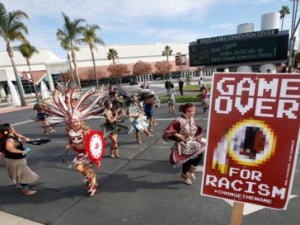

Research Bio
Over the course of US history, there have been and continue to be vast inequalities in terms of race and social class. Arianne Eason's research examines how features of our social and cultural context shape peoples’ attitudes and behavior in ways that work to reify existing inequalities and stagnate change.
Her work aims to shed light on: 1) how we think about and behave towards diverse others within a complex society riddled with inequality; and 2) how we facilitate positive change. Towards these aims, her research draws broadly on developmental, social, and cultural psychology to examine three processes, which I describe in more detail below:
- “Birds of a Feather Flock Together”: Racial Segregation and Same-Race Preferences: One hallmark of U.S. society is the people from various racial and ethnic backgrounds who live within it. Nonetheless, these racial groups live, attend schools, and work in largely segregated locations. Consequently, they experience very little diversity and cross-group interaction in their everyday lives. Thus, I investigate how exposure to segregated spaces can shape people’s expectations about cross-race interactions and their willingness to engage across group lines.
- “What is left out is as important as what is there”: Bias towards Native Americans: Instead of investigating how our physical landscape shapes people’s perceptions of diverse others, in this line of work I focus on our representational landscape. That is, what are the available representations in our social world, such as those offered by the media, popular culture, school, and even scientific research. By focusing on the omission of representations of Native Americans, I argue, and demonstrate that people make meaning from the lack of representation, and that this constitutes a form of bias, which ultimately impacts intergroup relations.
- “Better to be poor and honest than to be dishonest and rich?”: Perceptions of Resource Possession and Allocations in Infancy: Given the ubiquity of cues to wealth and resource inequality and the evolutionary significance of resource control, in this line of work I explore the development of evaluations based on resource allocations. For example, I ask are infants sensitive to how resources are distributed/acquired; how do infants evaluate fair and unfair resource distributors; how do infants evaluate advantaged and disadvantaged resource recipients/group members? Furthermore, I investigate whether there are individual/cultural differences in these sensitivities and evaluations.
Research Expertise and Interest
developmental psychology, social psychology, cultural psychology
In the News
Can Toddlers Help Explain the Origins of Our Bias for Wealth?
Washington Redskins’ name, Native mascots offend more than previously reported
Featured in the Media
Native Americans take more offense at sports teams' appropriation of tribal names and imagery than previous polls have suggested, according to a soon-to-be-published survey led by assistant psychology professor Arianne Eason. Polling more than 1,000 Native Americans, the researchers found that 57 percent of respondents who "strongly identify with being Native American" and 67 percent of those "who frequently engage in tribal cultural practices" are "deeply insulted by caricatures of Native American culture." Speaking of the Washington Redskins team, and ongoing efforts by native groups to get its name changed, this columnist writes: "What number of genuinely offended Native Americans is acceptable? ... The reality, no matter how many fans of the team get angry at me for declining to use the term, is this: Only one NFL team has a name that is recognized as a racial slur. And, inexplicably, the NFL is fine with that. ... At some point in the hopefully-not-too-distant future, history will regard this dynamic with the same incredulity that it regards other examples of blatantly racist conduct that, through the passage of time and thanks to right-minded men and women of goodwill, was eventually regarded as wrong and, in turn, abandoned." For more on this, see our press release at Berkeley News. Stories on this topic have appeared in more than a dozen sources, including Indian Country Today, the Washington Times, WTOP, Yahoo! Sports, Maryland Patch, Mirage News, and DCist.


